How Soviet intelligence prevented a nuclear war
Recall that in 1961, the United States began to deploy in the territory of Turkey, its faithful ally in the North Atlantic Alliance, medium-range missiles. The Soviet leadership had no doubts: US missiles based in the Izmir region would target the Soviet Union. It was a direct threat to the security of the Soviet state, which required a decisive and adequate response.
20 May 1962, Nikita Khrushchev met with Foreign Minister Andrei Gromyko, Defense Minister Marshal of the Soviet Union Rodion Malinovsky and First Deputy Chairman of the USSR Council of Ministers Anastas Mikoyan. At the meeting, Khrushchev voiced his long-standing idea - to deploy the Soviet nuclear weapon in Cuba, where by that time the ally of the USSR Fidel Castro was already in power.
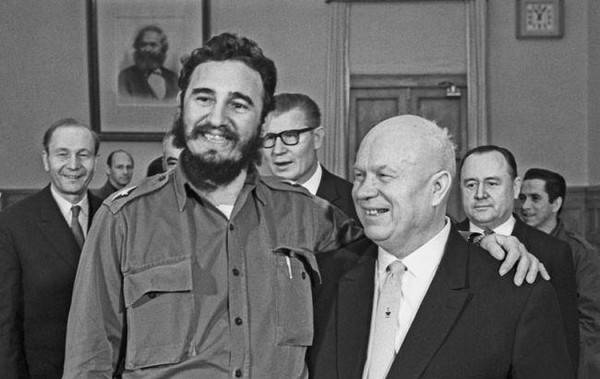
By June 1962, an operation was developed to transfer Soviet nuclear missiles to Cuba. The operation was planned by the Deputy Minister of Defense - Chief of Logistics of the USSR Marshal of the Soviet Union Ivan Baghramyan. The operation was called "Anadyr" - according to legend, the Soviet troops were transferred to Chukotka, although in fact on 85 ships they had to be relocated to Cuba. The operation was carried out in the strictest secrecy. And this task to the Soviet command succeeded - 4 September 1962, John Kennedy told the US Congress that there are no Soviet offensive missiles in Cuba.
Only 15 in October, 1962, by analysts of the CIA of the USA, who studied the photographs of the flights of American reconnaissance major Richard Heyzer, found that Soviet medium-range missiles are already in Cuba. This news excited the American leadership, which began to look for possible ways to neutralize the threat from the Soviet Union.
More recently, at the entrance to the hall of the restaurant "Occidental" in Washington, one could see a bronze plaque, which read that John Scali, a correspondent for the television company ABC, and a certain "Mr. X" were meeting at the table here in the busiest days of the Cuban crisis. THE USSR. It was this meeting, as the tablet claimed, that prevented the threat of nuclear war hanging over the world.
Mr. X in Washington was known under the pseudonym Fomin. In fact, it was the personnel Soviet intelligence officer Alexander Semenovich Feklisov. While the whole world watched with a shudder at the growing conflict of the two great powers, Feklisov took the most direct part in organizing the easing of tension between the USA and the USSR.
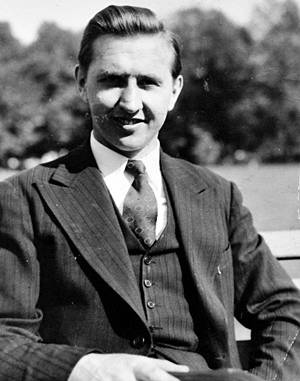 Alexander Feklisov was a man of the most ordinary origin. He was born on March 9 1914 in Moscow in a large family of railway workers. His childhood and adolescence were the same as those of millions of other Soviet people — a seven-year railway school, a factory factory specializing in steam locomotive repairman, and working as an assistant driver. However, the young working boy was drawn to education, since he was distinguished by his learning abilities and organization.
Alexander Feklisov was a man of the most ordinary origin. He was born on March 9 1914 in Moscow in a large family of railway workers. His childhood and adolescence were the same as those of millions of other Soviet people — a seven-year railway school, a factory factory specializing in steam locomotive repairman, and working as an assistant driver. However, the young working boy was drawn to education, since he was distinguished by his learning abilities and organization. In the 1939 year, at the age of 25 years, Alexander Feklisov graduated from the radio engineering faculty of the Moscow Institute of Communications Engineers. At that time, young working-class guys with higher education had very good chances to be selected for the Soviet power structures. And Feklisov was invited to work in the state security bodies of the USSR. He was sent to study at the Special Purpose School of the NKVD of the USSR, which trained personnel for Soviet foreign intelligence. The young man was assigned to a group that trained cadets for work in the United States.
After graduating from the Special Purpose School, in February 1941, Feklisov’s first business trip to the United States began. In the US, a young intelligence officer took the post of intern, had an operational pseudonym "Callistrat". For several months, Feklisov had to improve his knowledge of the English language, study the operational situation in the United States, and pick up materials for the American special services.
When Hitler's Germany attacked the Soviet Union, Feklisov engaged in the development of foreigners interested in Soviet intelligence. He worked in the area of scientific and technical intelligence, which was very important, because during the war years any innovations in the field of armaments could very seriously affect the situation at the front. The first trip to the United States lasted until 1946 year. Feklisov returned to Moscow after the victory - he won the Great Patriotic War on the “invisible front”. By the way, it was Feklisov who received from Julius Rosenberg the drawings of the atomic bomb, which the USAF dropped 9 August 1945 on the Japanese city of Nagasaki.
Having rested a little at home, in 1947, Feklisov was sent to London as a deputy resident for technical intelligence. There he continued to receive information about the development of the United States in the field of nuclear weapons, about the device of the hydrogen bomb. When Klaus Fuchs, who worked for Soviet intelligence, was identified and arrested, Feklisova was recalled to Moscow. By the way, Fuchs was the main supplier of information on developments in the field of nuclear weapons, which Feklisov transferred to Moscow. But when, after Feklisov’s resignation, they asked about the role of intelligence in building the Soviet nuclear shield, the veteran intelligence officer argued that Soviet nuclear weapons were not created by intelligence officers, but by Soviet scientists, and the agency in which he served only brought closer the date for creating a domestic nuclear weapon. weapons.
In the spring of 1950, Alexander Semenovich Feklisov was appointed to the post of deputy chief of the American department of Soviet foreign intelligence, and from December 1955 to August 1960. served as chief of the American department of the First Main Directorate of the KGB of the USSR. It was a very serious career for a scout - the United States at that time was the number one opponent and rival of the USSR, and Feklisov was responsible for the entire organization of intelligence activities in relation to the United States. It was under his leadership that all the Soviet intelligence officers acted, extracting information about the political and military actions of the United States, about scientific and technical developments, about hostile activities against our country.
In the spring of 1960, Alexander Feklisov was again sent on a foreign mission to the United States. He was appointed to the extremely serious and responsible post of resident Soviet intelligence in the United States. It is worth noting here that the beginning of the 1960s was a time of maximum tension between the United States and the Soviet Union. The cold war was in full swing, the situation was aggravated by the recent victory of the left forces in Cuba, as a result of which the pro-Soviet enclave was formed right next to the US, on which the Soviet military were stationed.
Naturally, at that time Washington did not lose hope of overthrowing Fidel Castro and return Cuba into the orbit of American political influence. At the same time, the confrontation between the socialist and capitalist blocs in Southeast Asia continued in Vietnam, Laos and Cambodia, and in Africa in the Portuguese colonies. The United States carried out subversive activities against the Soviet Union, supporting any opposition and dissident movements in Eastern Europe and in the national republics of the USSR. In such a difficult situation Feklisov and headed the Soviet residency in the United States of America.
But back to the events of the Caribbean crisis. October 25 held an emergency meeting of the UN Security Council, at which US Representative Stevenson accused the Soviet Union in deploying Soviet missiles in Cuba. The Soviet representative Zorin, who was not aware of Operation Anadyr, refused to answer the American diplomat, since the latter asked questions "in the prosecutorial plan." Then the members of the American delegation to the UN Security Council brought into the hall enlarged photographs of launchers of Soviet medium-range missiles in Cuba. On the same day, US President John F. Kennedy ordered the United States military to be in the DEFCON-2 state. This was the first and last time in world history, when Washington increased the combat readiness of its armed forces to such a level.
The next day, October 26, 1962, Alexander Semenovich Feklisov invited his acquaintance TV journalist John Scali to the Occidental restaurant. They had known each other for a year and a half. Of course, the American perfectly understood who Feklisov really is. Therefore, Scali threatened Feklisov that if the USSR did not remove the missiles from Cuba, then the American army would land on the “Liberty Island”. And then Feklisov, having sprayed himself, added from himself that the Americans, of course, were free to land in Cuba, but then Moscow would strike in another vulnerable place - in West Berlin. Soviet troops using tanks will capture West Berlin in two counts, stressed Feklisov.
Of course, no one gave the Soviet resident the authority to make such statements, but Scali took this threat as the official position of the Soviet leadership. And, since he was well acquainted with John Kennedy, immediately after meeting with the Soviet resident he contacted the head of state and announced the plans of the USSR to strike at West Berlin.
After three and a half hours, Scali called Feklisov and again invited him to a meeting in a cafe. There he conveyed to the Soviet resident the conditions of Kennedy - the USSR should withdraw missiles from Cuba under UN control, and the US would then lift the island’s sea blockade and make a public statement that they would never invade Cuba again. Although this statement was made orally, Feklisov wrote it down. And he asked Scali when the Americans removed their missiles from Turkey. An answer was received - after six months.
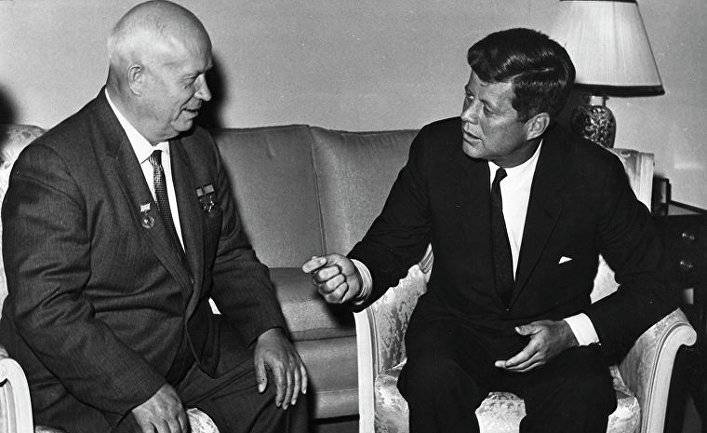
Returning to the embassy, Feklisov encrypted via intelligence sent the contents of a conversation with an American journalist to Moscow. The whole next day of October 27 and the Soviet and American sides spent in suspense. On the morning of October 28 1962, Nikita Khrushchev agreed to the withdrawal of Soviet missiles from Cuba and accepted the American conditions. Later, official negotiations began, leading to a peaceful solution to the Caribbean crisis.
Thus, the meeting of the Soviet intelligence officer with an American journalist actually put an end to the confrontation that put the world on the brink of a nuclear catastrophe. Soon the United States withdrew missiles from the territory of Turkey, which was a great achievement to ensure the security of the Soviet state.
Alexander Semenovich Feklisov headed the Soviet residency in Washington until 1964. In the 1964 year, at the age of fifty, he returned to his homeland and continued to serve in the Red Banner Institute of the KGB of the USSR. In 1974, he retired with the rank of colonel, having worked in foreign intelligence for a total of 35 years, of which 15 spent years abroad on business trips to the United States and the United Kingdom.
Already in the post-Soviet time, Alexander Semenovich wrote several interesting books in which he spoke about his service in foreign intelligence, including overseas, about how relations with Soviet agents were built by one of the most famous US presidents - John F. Kennedy.
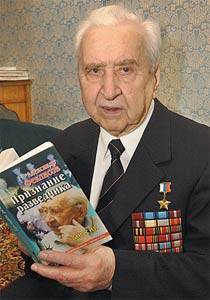
The most interesting thing is that Feklisov’s role in preventing nuclear war was carefully hidden in the Soviet Union itself for many years after the Caribbean crisis. Of course, Alexander Semenovich was repeatedly awarded high state awards, including the Order of the Patriotic War of the 2 degree, two orders of the Red Banner of Labor, two orders of the Red Star. But only in 1996, the President of the Russian Federation, Boris Yeltsin, awarded the 82-year-old foreign intelligence veteran Colonel Alexander Feklisov the title of Hero of Russia.
Alexander Semenovich Feklisov lived a long and very interesting life. There was more space in it not so much for romance, as for daily difficult and dangerous work for the benefit of the interests of the Soviet state. Colonel Alexander Feklisov passed away on October 26 on 2007, at the age of 93.
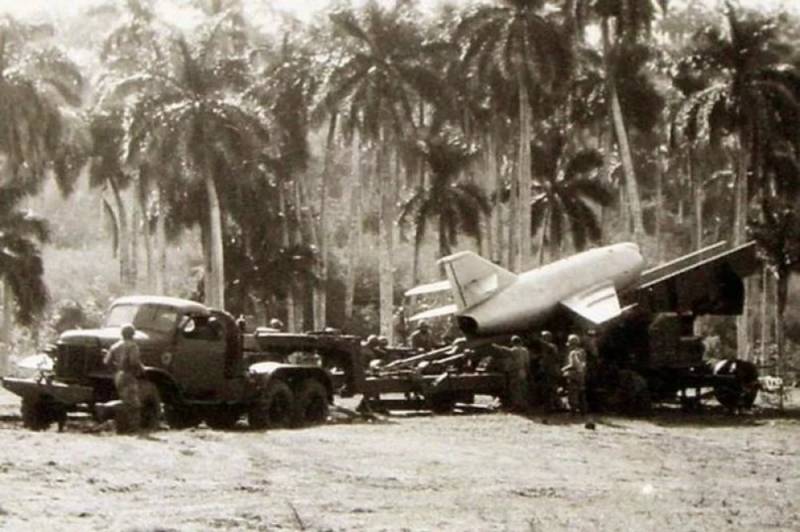
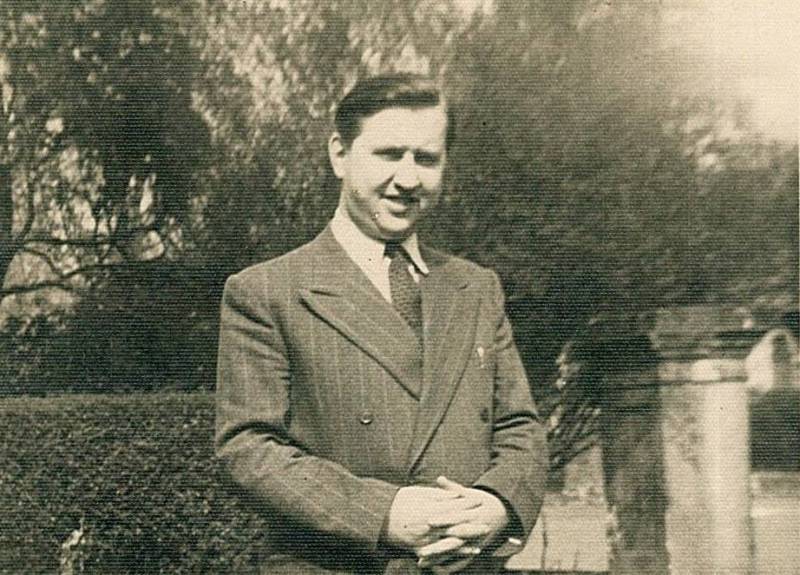
Information